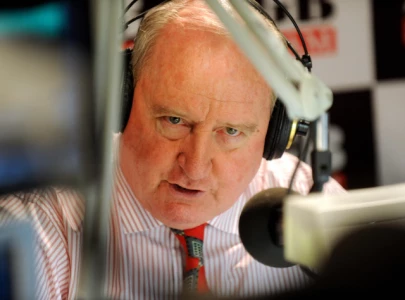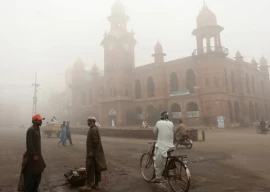
Foreign oil and gas exploration and production companies view the investment environment in Pakistan as something that is fraught with risks, which emerge due to bureaucratic hurdles, cumbersome regulatory framework, slow implementation, inconsistent policies, NAB investigations, law and order issues and foreign policy.
Background interviews with officials of these companies reveal that the risk factor is high, driving away prominent names – Malaysia’s Petronas, British Petroleum, Ireland’s Tullow, Canadian Niko Resources and US-based Chevron.

“Risk factor is high for investment in oil and gas in Pakistan, most foreign companies put the risk at 25%, which have gone up due to lack of implementation of policies,” the head of a company told The Express Tribune.
He said most of the foreign companies painted the picture based on media reports, which affected the parameters used to calculate the investment risk. “If we get a reasonable return, then we don’t take into account these parameters,” he said.
In an effort to stimulate investment, Pakistan has approved Petroleum Policy for 2012, low Btu policy, tight gas policy and also offered attractive prices for offshore drilling. It is also working on tapping shale gas reserves.
“However, no new investor participated in the bidding of exploration blocks during the tenure of the previous government and only existing players expressed interest,” a foreign company representative said. “We also did not take part as we want to resolve the issues first.”
Foreign companies term bureaucracy a major stumbling block. Though the country saw significant gas discoveries before 2000 under the Petroleum Policy for 1994, the bureaucracy pressed the then government to bring a new policy and reduce the gas price.
Only two companies – Dewan Petroleum and OMV – found gas reserves under the new 2001 policy. However, Dewan later faced a NAB probe over the price issue and OMV also encountered price problems, which did not end.

In another example, Polish Oil and Gas has been supplying tight gas to a state-owned gas distributing company for the last five months, but has not received a single penny because of “bureaucratic hurdles”.
Inconsistency of policies has also added to the risk. OMV made an investment following guarantees that the price set in the 2012 Petroleum Policy for a 10% increase in production would be offered. However, this clause was amended when the new government took over.
“This is what we are facing, putting our investment at stake,” a head of a foreign company said.
Director General Petroleum Concession (DGPC) and the Oil and Gas Regulatory Authority (Ogra) are the two regulators that deal with exploration companies. However, both are termed ineffective as the DGPC has failed to address the issues faced by the companies whereas Ogra has been working without the member gas – a crucial slot – for several months. In the absence of the member gas, gas price cannot be determined.
The foreign company head insisted that this was not the right time to develop shale gas reserves, which needed environmental regulations and tax laws. The government should rather focus on tight gas, low Btu and onshore and offshore gas by implementing the announced policies, he suggested.
Cancellation of projects, like the LNG Mashal, has also discouraged investors. After the scrapping of Mashal project, the country got a poor response to all tenders, in which only Pakistani parties participated.
Law and order situation was another area of concern. There are several blocks in Balochistan that hold considerable hydrocarbon reserves, but they are not being drilled due to the poor security situation.
In the refining field, conditions are not encouraging either. Byco expanded its refinery with a capacity of 120,000 barrels per day after approval of the Economic Coordination Committee (ECC). But the regulator objected and the company had not been able to start commercial operations.
Apart from this, the Abu Dhabi government has put billions of dollars in Khalifa Refinery, but the project has been on hold because of a tussle over the appointment of the head of Pak Arab Refinery (Parco).
Experts say that the policy does not treat all countries equally. It “benefits specific countries like China, US and Saudi Arabia”, but Iran, which is eager to set up a refinery at the Gwadar port with an investment of $8 billion, could not push ahead with the plan because of US pressure on Pakistan.
Russia also offered investment in different projects but faced a poor response and even the Russian president postponed a planned visit to Pakistan during the tenure of the previous government.
“Pakistan wanted to sign only a memorandum of understanding whereas Russia was seeking concrete deals on different projects including the Iran-Pakistan gas pipeline,” a source said.
Published in The Express Tribune, December 9th, 2013.
Like Business on Facebook, follow @TribuneBiz on Twitter to stay informed and join in the conversation.


1731925783-0/Betty-White-(1)1731925783-0-165x106.webp)

1731926127-0/zayn-(1)1731926127-0-165x106.webp)




1731884290-0/image-(9)1731884290-0-270x192.webp)







COMMENTS
Comments are moderated and generally will be posted if they are on-topic and not abusive.
For more information, please see our Comments FAQ